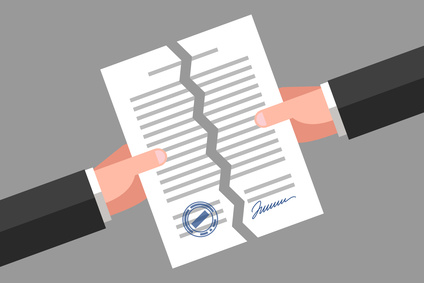
In Eastman v. Biomet Inc., a man who had already accepted $25,000 to settle a products-liability suit against Biomet filed a second suit in hopes of receiving an additional $175,000. Eastman v. Biomet, Inc., No. 17-3463, 2018 U.S. App. LEXIS 14106 (7th Cir. May 29, 2018). Biomet had been in a multi-district litigation where the plaintiffs alleged that they had suffered injuries due to Biomet’s artificial hip devices. The parties entered into a Master Settlement Agreement which outlined the procedures for determining the settlement amounts that would be received by the individual plaintiffs. The agreement provided that certain categories of plaintiffs would presumptively receive $200,000 with Biomet being able to offer a reduced amount in appropriate cases. The agreement also provided mediation of disputes about the settlement awards as an option.
Eastman was offered $25,000 to settle his case with Biomet. “Biomet’s attorney gave four reasons for the reduction: (1) Eastman had no medical records from the four-and-a-half years after he received the artificial hip device, (2) he never had been definitively diagnosed with injuries caused by the device, (3) he had suffered physical injuries in a brawl the day before he had surgery to replace the device, and (4) his medical records described him as “a horrible patient”.” It was also mentioned that mediation could be arranged if Eastman so desired, but Eastman chose not to mediate. Eastman accepted Biomet’s offer and signed a broad release of his claims, which essentially stated that in return for the $25,000 payment, he released Biomet from “all claims … of whatever kind … whether known or unknown … [that are] in any manner connected with” Biomet’s hip-replacement device.
Despite signing the release, Eastman sued Biomet for breach of the Master Settlement Agreement a few months later. His reasoning was that Biomet had breached the Agreement by reducing his settlement award from $200,000 to $25,000 without “good cause”. Biomet moved for summary judgment stating that the release Eastman had signed to settle the first suit barred him from the second suit, at which time Eastman responded that the release he had signed was not a binding contract but a counteroffer since he had made changes to the document. Unbeknownst to either Biomet or Eastman’s own attorney, Eastman had changed “irrevocable” to “revocable” in a provision that read: “By signing this Release, the RELEASING PARTY understands that it is irrevocable.” Second, he changed “binding” to “nonbinding” in a provision that read that the “Release shall be final and binding upon RELEASING PARTY.” Finally, he changed the choice-of-law provision so that it stated the release was to be governed by Arkansas law rather than Indiana law.
The district court rejected that argument and granted Biomet’s motion for summary judgment. Eastman appealed, challenging the district court’s conclusion that the release barred him from his second lawsuit. The court said that the Master Settlement Agreement had given both parties the opportunity to dispute the base settlement amount through mediation and that Eastman had waived this right when he accepted and retained Biomet’s $25,000 payment as settlement. Eastman could not use the agreement as “a basis for a contract claim for $200,000 while simultaneously ignoring the provision conditioning that sum on a process that he has eschewed.” The U.S. Court of Appeals for the Seventh Circuit affirmed the district court’s judgment.




